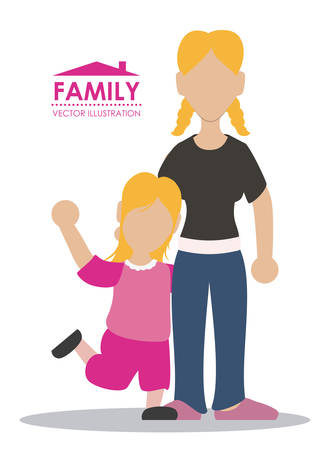1. Understanding Toddler Social Development
As your toddler grows, their social skills develop in stages. Understanding these stages can help you set realistic expectations and support your child as they learn to interact with others.
Stages of Social Development in Toddlers
Toddlers go through several key stages of social development, each with its own characteristics. Here’s a general guide to what you can expect at different ages:
| Age Range | Social Development Milestones |
|---|---|
| 12-18 months | Begins to show interest in other children but mostly engages in parallel play (playing alongside but not directly with others). |
| 18-24 months | Starts imitating others, enjoys simple games like peekaboo, and may begin showing early signs of sharing. |
| 2-3 years | Engages in more interactive play, learns basic turn-taking, and starts using words to communicate needs and feelings. |
| 3+ years | Begins cooperative play, develops friendships, and understands the concept of empathy. |
The Importance of Early Social Skills
Toddlers learn social skills through observation and practice. Encouraging positive interactions from an early age helps them build confidence and develop important life skills such as communication, cooperation, and empathy.
Common Social Behaviors in Toddlers
Your toddler may display a range of social behaviors as they grow. Some common behaviors include:
- Mimicking Others: Copying actions and expressions is a key way toddlers learn social cues.
- Tantrums and Frustration: Difficulty sharing or taking turns is normal at this stage.
- Bonds with Familiar People: Prefers playing with parents or caregivers before branching out to peers.
- Eager to Help: May enjoy small tasks like handing objects to others.
What Parents Can Do
You can support your toddler’s social growth by providing opportunities for interaction. Arrange playdates, visit playgrounds, and model positive social behavior yourself. Encouraging patience and kindness will help your child navigate friendships more smoothly.
2. Creating Opportunities for Social Interaction
Helping your toddler build friendships starts with providing them with opportunities to interact with other children. Whether through structured playdates or everyday encounters, these experiences help toddlers develop essential social skills.
Playdates: A Fun and Safe Way to Socialize
Setting up playdates is a great way to introduce your child to social interactions in a comfortable environment. Here are some tips for making playdates successful:
- Keep it short: Start with 30-60 minutes to avoid overwhelming your toddler.
- Choose the right playmate: Look for children with similar temperaments and interests.
- Provide shared activities: Have simple toys or games that encourage cooperation.
- Stay nearby: Supervise interactions but allow them space to explore and engage.
Group Activities for Social Growth
Toddlers benefit from structured group activities where they can learn teamwork, communication, and patience. Consider enrolling your child in:
| Activity Type | Benefits |
|---|---|
| Music or dance classes | Encourages coordination, rhythm, and group participation. |
| Toddler gym sessions | Helps develop motor skills while interacting with peers. |
| Library storytime | Promotes listening skills and shared experiences. |
| Moms groups with toddler meetups | A supportive environment for both parents and kids. |
The Power of Everyday Interactions
Your toddler doesn’t need a formal event to practice social skills—everyday moments provide valuable learning opportunities. Try these simple ways to encourage interaction:
- Parks and playgrounds: Encourage your child to take turns on slides or swings.
- Coffee shop visits: Let them say “hi” to another child while waiting in line.
- Siblings and cousins: Family members offer great practice for sharing and teamwork.
The more exposure your toddler has to different social settings, the more confident they will become in making friends!

3. Teaching Basic Social Skills
Helping your toddler develop basic social skills is an essential part of making friends. Young children are still learning how to interact with others, and they need guidance to understand important concepts like sharing, taking turns, and expressing emotions in a positive way. Here are some effective strategies to support your child’s social development.
Encouraging Sharing
Sharing can be challenging for toddlers since they are still learning about ownership and cooperation. You can help them develop this skill by modeling sharing behavior and using simple techniques:
| Strategy | How It Helps |
|---|---|
| Model Sharing | Show your child how to share by sharing your own items, like offering them a bite of your snack. |
| Praise Positive Behavior | When your toddler shares, acknowledge it with praise like, “That was so kind of you to share your toy!” |
| Use Turn-Taking Games | Play games that require turn-taking to help your child practice waiting and sharing. |
| Create Opportunities | Arrange playdates where kids have to share toys, helping them learn through real experiences. |
Teaching Taking Turns
Toddlers often struggle with waiting their turn, but practicing this skill can make social interactions smoother. Try these approaches:
- Use a Timer: Set a short timer during playtime so each child knows when it’s their turn.
- Simplify Instructions: Use phrases like “My turn, then your turn” to help them understand the process.
- Praise Patience: When your toddler waits patiently, acknowledge their effort with encouragement.
- Play Turn-Based Games: Board games or simple activities like rolling a ball back and forth reinforce turn-taking.
Helping Toddlers Express Emotions Positively
Toddlers experience big emotions but may not know how to express them appropriately. Teaching emotional expression helps them build better relationships with peers.
Name Their Feelings
Encourage your child to identify emotions by saying things like, “I see youre feeling frustrated because you want the toy.” This helps them connect words to feelings.
Create a Calm-Down Routine
If your toddler gets upset during playtime, guide them through calming techniques like deep breathing or counting to five before reacting.
Select books that talk about emotions and friendships. Reading together provides opportunities to discuss feelings in a relatable way.
Praise Positive Expressions
Acknowledge when your child expresses their emotions in a calm way, such as saying, “Im proud of you for using your words instead of yelling.”
4. Modeling Positive Social Behavior
Young children learn by watching the people around them, especially their parents and caregivers. If you want your toddler to develop strong social skills, its essential to model positive behavior in your daily interactions. By demonstrating kindness, patience, and good communication, you help your child understand how to interact with others in a friendly and respectful way.
Be Mindful of Your Own Behavior
Your toddler is always observing, even when you don’t realize it. The way you talk to family members, handle conflicts, or greet a neighbor all serve as examples for your child. Make an effort to show positive social behaviors like:
- Using polite words like “please” and “thank you”
- Listening attentively when someone is speaking
- Handling disagreements calmly and respectfully
- Showing empathy toward others
Encourage Friendly Conversations
Engaging in friendly conversations with others while your child is present helps them understand how to communicate effectively. Try these strategies:
| Situation | How to Model Positive Behavior |
|---|---|
| Grocery Store Interaction | Saying “hello” to the cashier and making small talk demonstrates friendliness. |
| Playground Play | Introducing yourself to other parents shows your child how to start conversations. |
| Family Gatherings | Asking relatives about their day teaches your child how to engage in meaningful discussions. |
Practice Role-Playing at Home
If your toddler struggles with social interactions, role-playing can be a fun and effective way to practice. Set up pretend play scenarios where you take turns saying hello, asking questions, or sharing toys. This helps build confidence before they encounter real-life situations.
Acknowledge and Praise Good Social Behavior
Praising your child when they use good manners or show kindness reinforces positive behavior. Simple phrases like “I love how you shared your toy with your friend!” or “That was so kind of you to say thank you!” help encourage continued social growth.
5. Handling Social Challenges and Setbacks
As your toddler learns to make friends, they may encounter social challenges like shyness, conflicts, or difficulty forming new connections. These experiences are normal, and with the right support, your child can develop confidence and essential social skills.
Helping a Shy Toddler
If your toddler is naturally shy, they may need extra encouragement in social situations. Here are some ways to help:
- Practice Social Scenarios: Role-play common interactions at home so your toddler feels more prepared.
- Encourage Small Playdates: Start with one-on-one playdates before introducing larger groups.
- Avoid Forcing Interactions: Let your child warm up at their own pace rather than pushing them into social situations.
- Praise Their Efforts: Acknowledge small steps, like saying “hi” or playing near other children.
Navigating Conflicts with Peers
Toddlers are still learning how to express themselves and resolve disagreements. When conflicts arise, you can guide them by:
- Teaching Simple Phrases: Help them use words like “Can I have a turn?” or “Let’s share.”
- Modeling Conflict Resolution: Demonstrate how to stay calm and talk things out.
- Acknowledging Feelings: Validate their emotions while teaching appropriate ways to express frustration.
- Encouraging Problem-Solving: Ask questions like “What can we do to fix this?” to help them think of solutions.
Easing Anxiety About Making New Friends
If your child struggles with making new friends, try these strategies to boost their confidence:
| Challenge | How to Support Your Toddler |
|---|---|
| Nervous about approaching new kids | Suggest simple greetings like “Hi! Can I play too?” |
| Tends to cling to familiar people | Gradually introduce them to new settings with familiar faces nearby. |
| Lacks confidence in group play | Praise cooperative behavior and highlight moments of successful interaction. |
| Easily discouraged if ignored | Reassure them that not everyone responds right away and encourage trying again later. |
Your Role in Supporting Social Growth
Your toddler will experience ups and downs as they learn social skills. By providing reassurance, modeling positive interactions, and creating opportunities for practice, you can help them navigate challenges and build strong friendships over time.


